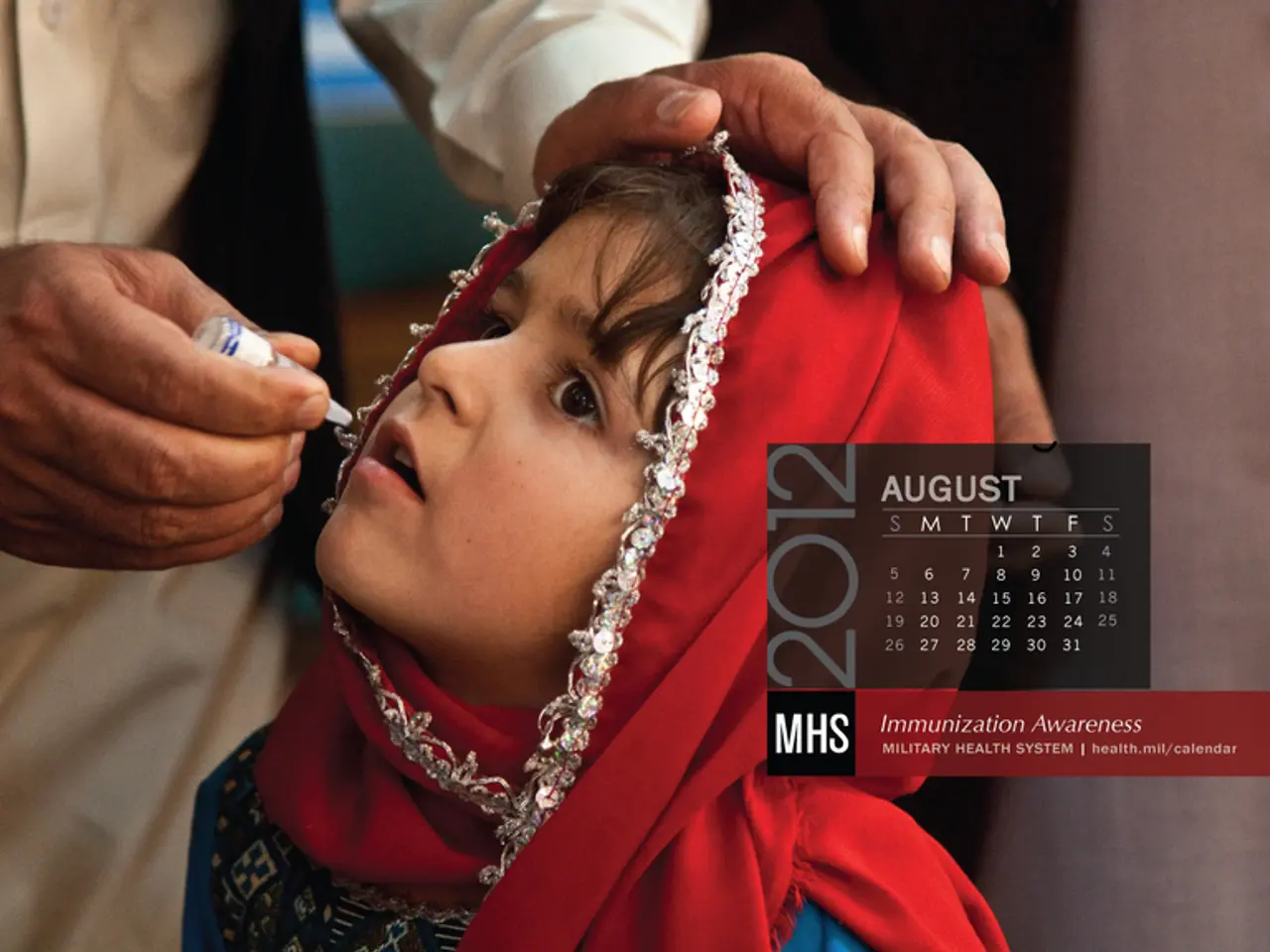Vaccine-Associated Cardiovascular Risks, Safety Measures, and Health Advice Regarding COVID-19 Vaccination
In the ongoing battle against the COVID-19 pandemic, vaccines have proven to be a crucial weapon. However, like any medical intervention, they come with potential side effects. Myocarditis and pericarditis, inflammation of the heart muscle and its outer lining respectively, are two such side effects associated with COVID-19 mRNA vaccines.
Myocarditis and pericarditis are rare, occurring predominantly in adolescent and young adult males. According to recent studies, the incidence varies by age and sex but is generally around 1 to 10 cases per 100,000 vaccinated individuals. The COVID-19 mRNA vaccine accounted for the largest proportion (over 75%) of reported myocarditis cases in pharmacovigilance databases.
Males under 30 years of age have the highest risk of these conditions. For every one million males aged 12-17 years who took the vaccine, about 56-69 would develop myocarditis. However, this number of young males taking the vaccine would prevent 5,700 COVID-19 transmissions, 215 hospital admissions, and two deaths.
Females have a lower incidence of vaccine-associated myocarditis; some scenarios report zero cases in younger females. It's important to note that COVID-19 infection carries a greater myocarditis risk than vaccination. Young males infected with SARS-CoV-2 have a 2 to 8 times higher risk of myocarditis than those vaccinated.
Symptoms usually begin within 0–7 days post-vaccination, often after the second dose, and most cases improve rapidly with treatment and rest. Pericarditis causes fewer symptoms but can lead to sharp chest pain that worsens with breathing, a rapid heartbeat, breathlessness, and fever. Myocarditis can lead to symptoms such as chest pain, discomfort, loss of consciousness, breathlessness, extreme fatigue, stomach pain, inability to exercise, fever, reduced or lost appetite, swelling in the feet and legs, feeling weak, and more.
It's essential to remember that the benefits of COVID-19 vaccines far outweigh the risks, even for those with cardiovascular risk factors, heart disease, and survivors of stroke or heart attack. The CDC states that it is safe for such individuals to receive a COVID-19 vaccine.
Researchers have found that even a mild COVID-19 infection can increase a person's risk of developing heart disease. Balancing concerns about the potential cardiac effects of COVID-19 vaccines against the potential cardiac effects of COVID-19 is the best way to make a personal decision on this sensitive medical topic.
For those who experience symptoms of myocarditis or pericarditis after receiving the COVID-19 vaccine, it's crucial to contact a doctor urgently. Most people with heart inflammation who seek medical care respond well to medication and can return to everyday activities as soon as symptoms improve.
The article will explain the current research on the COVID-19 vaccine, heart disease, and the next steps for those who experience side effects involving the heart. Heart inflammation is the immune system's natural reaction to an infection or, in rare instances, a vaccine. The risk of myocarditis after receiving the COVID-19 mRNA vaccine is highest in males aged 16-24 years, with nine to 28 excess events in every 100,000 vaccine recipients.
In summary, myocarditis and pericarditis after COVID-19 mRNA vaccines are rare, mostly affect young males, and are generally mild and self-limiting. The risks from COVID-19 infection itself are higher, supporting vaccination benefits despite these rare adverse events.
Read also:
- Chest X-ray findings in heart failure: An overview
- Improvement indicators for pneumonia: Recognizing the signs and additional information
- Seniors with no offspring in Kerala are entitled to legal maintenance, only from their direct heirs, as ruled by the High Court.
- Chest Pain Connected with Hiatal Hernia: Remedies and When to Request Assistance





